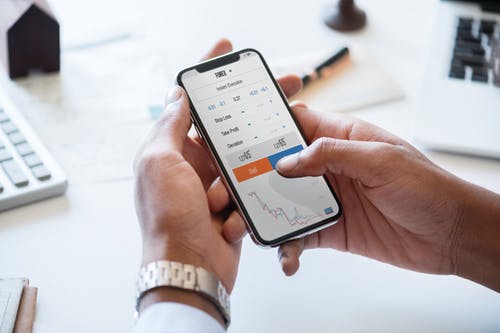The forex market is in many investors’ portfolios for all the right reasons. The market offers a nice mix between risks and returns. There are more than enough opportunities to make money on the market – especially with the market being as volatile as it is today – and getting into forex trading is also very easy. There are even special offers and bonuses to help you start trading foreign currency pairs without risking your real money in the process.
One thing you must not forget about the forex market is the fact that it is still an investment. You cannot expect trading forex pairs to be a way for generating a lot of wealth over a short period of time. There are things to learn and risks to manage for you to be successful in this market. Risks in particular are frequently neglected by new traders, which is why we are going to review the best risk management tips you need to know in this article.
Work with the Right Broker
The first thing you can do to manage your risk from the moment you consider entering the forex market is to choose a broker. Working with a good broker means eliminating unnecessary risks such as the risk of not being able to make a withdrawal, or worse, a broker that trades against you on the market.
Thanks to the booming forex market, finding a good broker that suits you is now easy, no matter how specific your requirements may be. You can also find special offers and bonuses on your initial deposit, plus all brokers now offer demo accounts to allow you to test the platforms they offer without any risk.
Most of the time, it all comes down to reviews and insights from users. If you are interested in using Darwinex as your broker of choice, for instance, you can find out more about the broker, the platform and features it offers, and even details about Darwinex copy investing and risk management from the InvestinGoal review page.
Learn About the Market
Knowledge is a crucial risk-management tool you absolutely need to have when trading forex pairs. The more you know about the market and the instruments you are trading, the better decisions you can make along the way. Knowing more also means you can avoid making unnecessary mistakes when trading, such as opening a position without checking the fundamentals.
Once again, you have a lot of resources to utilise if you want to learn more about the forex market. The one thing I recommend you do before trading live is signing up for a demo account. You can use the demo account to simulate your trading strategies, practice reading technical indicators, and learn more about the market in real-time, all without risking your money.
Leave Your Emotions at the Door
There is also the risk of chasing losses and making silly trading decisions after a big profit. Seeing greens in your trading history can make you trade in euphoria. Going through a series of bad losses also has the potential of clouding your judgement, which usually leads to more bad losses.
Trading isn’t something you want to approach in an emotional way. Scoring profits and accepting losses are no more than a part of the process. You have to practice looking at every trade decision you make from an objective point of view.
Being emotional is a serious risk to your investment in the forex market. The only way you can manage this risk is through practice. Walk away every time you realise that you are being too emotional while trading. Don’t worry, the market will still be there when you return.
Master the Moves
Last but certainly not least, you need to know how to deal with different risks and situations. Actually, knowing what do to lets you be less emotional when trading too. It may be impossible to plan for every situation when trading forex, but that doesn’t mean you cannot prepare for some.
Setting a stop loss every time you open a position is a good start. The stop loss acts as a limit to the amount of risk you face. A stop loss of 20 pips means the position will be automatically closed when the market moves 20 pips against you.
Setting a target profit is also recommended, especially when you are not day-trading or monitoring the market constantly. You can assume a more relaxed trading style by defining these two points and letting the trading platform do the rest for you.
When you do suffer from a loss and you have enough margin in your account, you also have the option to hedge your position or average it to lower your break-even point. As long as you pay attention to the tips and tricks we covered in this article, you can use these moves to manage your risks from the moment you enter the forex market.










